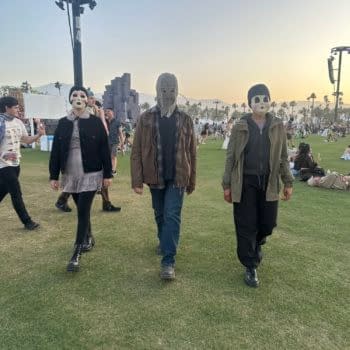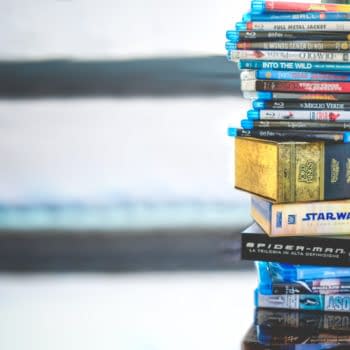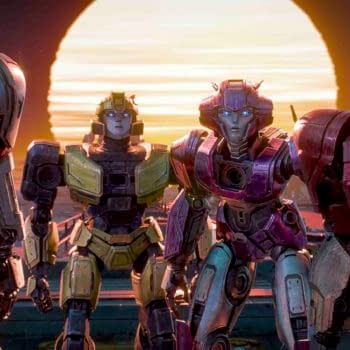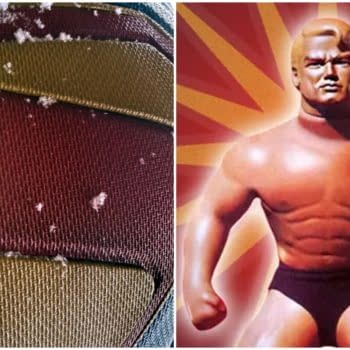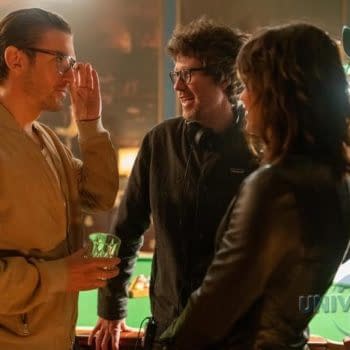Posted in: Movies, Star Wars | Tagged: adam driver, daisy ridley, HRL, Kylo Ren, mark hamill, rey, star wars, star wars: the last jedi, the force awakens, The Last Jedi
[SPOILERS] Star Wars: The Last Jedi – on the Importance of Rey's Parentage
Star Wars: The Last Jedi finally gives us an answer to a question that fans have been obsessing over since the character of Rey (Daisy Ridley) was introduced: just who are Rey's parents?
The Last Jedi finally reveals who those people that left Rey on Jakku as a child were, and it adds and important layer to the character, the new series of films, and is an incredibly smart move. It also adds another important wrinkle to the dichotomy between Rey and Kylo Ren (Adam Driver).
Naturally, extreme spoilers follow for those who have not yet seen the film, so if you don't want to be spoiled, read no further until you've seen the film and come back later.
![[SPOILERS] Star Wars: The Last Jedi – on the Importance of Rey's Parentage](https://mlpnk72yciwc.i.optimole.com/cqhiHLc.IIZS~2ef73/w:600/h:400/q:75/https://bleedingcool.com/wp-content/uploads/2017/11/tlj3.jpg)
During Kylo Ren's offer to Rey, in an attempt to tempt her to his path, he gets Rey to admit the truth that she's always known about her parents. He elaborates on what he claims to have seen in a Force vision too: Rey's parents are no one of consequence — a pair of "junk rats" who sold Rey into indentured servitude for credits and now probably lay dead in an anonymous grave somewhere in the galaxy.
Kylo Ren's attempt with this information actually is a pretty good example of 'negging': an act of emotional manipulation via the use of backhanded compliments or direct insults to undermine the confidence of the targeted individual and make them feel more in need of getting the manipulator's approval. So it's also possible it's a lie.
But then we get Rey's own Force vision, which we the audience are actually privy too, when she goes into the dark underground cavern on Luke's island on Ahch-To. During this sequence, Rey asks who her parents are. In the reflective surface, she sees two shadows approach before blending into one, and then clarifying to reveal… Rey.
It's actually a really smart answer to the question of who Rey's parents are. Ultimately, who they are is not important at all. This isn't their story; it's Rey's.
In a manner, that is almost what the vision was revealing to her: her parents don't matter. What matters is Rey, who she is, and her actions.
If Rey's parents had been revealed to be important characters from the history of Star Wars, so much of the conversation would be around how her parents affect her story, or how important that heritage is for her. But Rey coming from nothing, being "no one," as Ren says, narrows the focus to just her. This helps define to the audience Rey's sole importance and that the hero can come from nothing; that anyone can be the hero (this, of course, is reiterated in the final scene with the children on Canto Bight, who have been inspired by the heroics of the Rebellion).
This also adds a new element to the dichotomy of Rey and Kylo Ren. The pair are more than simply just opposite ends of the same spectrum. Kylo, for all his talk of starting something new, "killing the past," and his claims of forgetting the Jedi, the Sith and all those things that came before to make something, is mired in the past.
He comes from the vaunted Skywalker heritage — obsessed with his grandfather Anakin/Darth Vader, he's completely unable to move past his past, no matter how much of it he "kills". It's clear just how locked into the past he is — he performs exactly what all Sith do: he kills his master to take his place; when he sees the Millennium Falcon, he sends his entire squadron against it; when he sees Luke Skywalker (Mark Hamill), he unleashes a completely overkill barrage, and then makes his army wait for him to have a one on one battle, which ultimately allows the Rebels to get away.
Kylo Ren is unable to move forward, locked into an obsession with the past that makes it impossible for him to try something new, whereas Rey has accepted the truth of the past — but that it ultimately has no sway over how she moves forward. Rey respects the past, but she is not burdened by it.
In many ways, that is arguably something that can be said of the new Star Wars movies too. Some argue that The Force Awakens was a rehash of A New Hope, but The Last Jedi can't really be argued as being a rerun on any past events. If The Force Awakens was a rehash, it was maybe important then to show the magic of original to a new audience and show the love and respect, but The Last Jedi is a statement on moving the story forward now, unburdened by what came before.
Rey shows this. We see that she has saved the Jedi texts from their destruction, but that doesn't mean she will follow them to the letter. She respects the past, but is not locked to it — Kylo Ren has come to hate the past, but in that anger he has become trapped by it.
In many ways, removing the question of Rey's heritage by pointing out, plainly and concretely, that they are not what is important was a strong, bold move that holds so much meaning for the characters and the films themselves.













